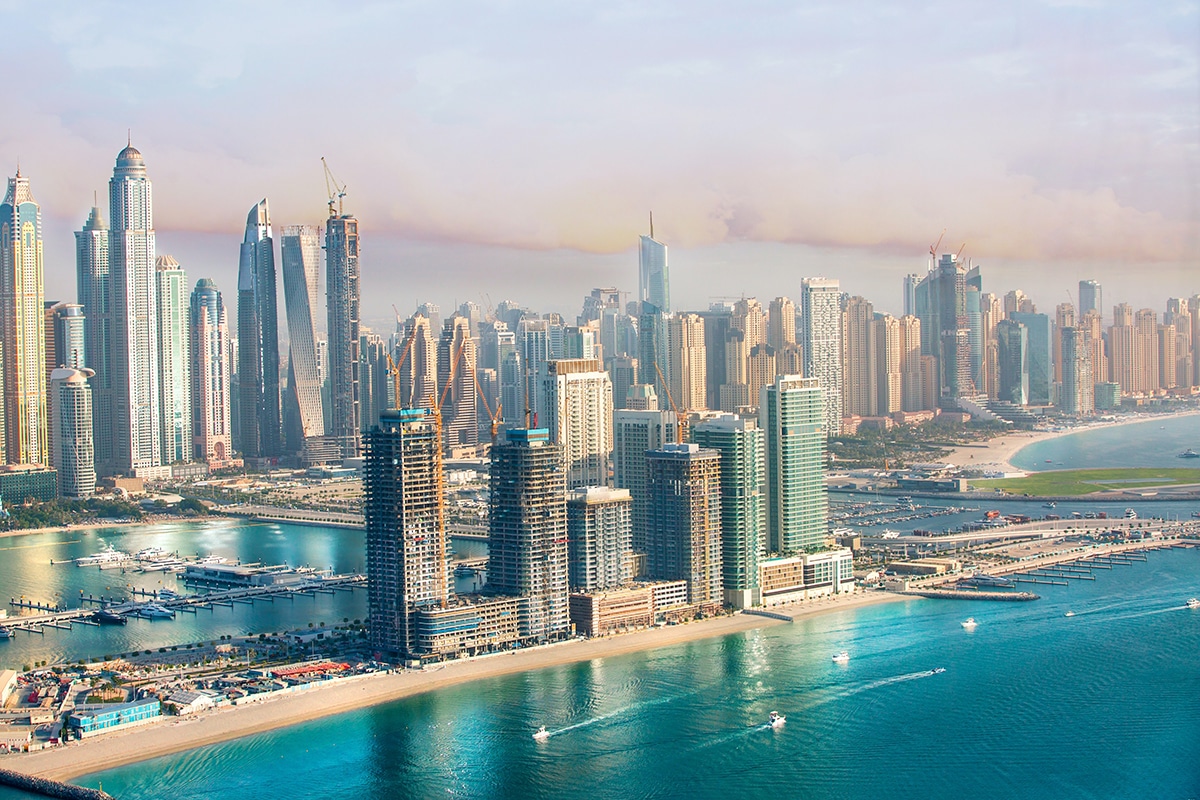Non-Resident Indians (NRIs) are increasingly focusing on the Dubai real estate market, drawn by the promise of tax-free returns and potential yields of up to 10 percent, experts told Arabian Business.
With no limits on property purchases and opportunities for long-term visas, the UAE continues to attract NRI investors seeking lucrative real estate opportunities.
“The obvious lure of property investments in Dubai is that there is no income tax, and no capital gains tax if you decide to sell. Investors can yield even up to 10 percent ROI,” Rennie Sanger, Senior Off-Plan & Investment Consultant, haus & haus Real Estate said.
Jumeirah Lake Towers area gains popularity among NRIs
However, NRIs investing in Dubai “should be familiar with key government bodies” such as the Dubai Land Department (DLD) and the Real Estate Regulatory Agency (RERA), Karan Bajaj, Client Manager at Betterhomes added.
“In the primary off-plan market (under-construction properties from developers), important considerations include ensuring an escrow account is in place before booking, having a Sale Purchase Agreement (SPA), understanding potential delivery delays (delay clause), knowing when you can resell the property (exit clause), and eventually obtaining the pre-title deed (Oqood). In the secondary market (properties sold by individual owners), it’s crucial to understand the resale process and the transfer of ownership at the DLD trustee office. This includes being aware of the various forms involved (Form A, Form B, and Form F) and being physically present during the transfer, unless a Power of Attorney (POA) is arranged,” he said.
Bajaj further explained NRI investors are “increasingly favouring” prime developing communities such as Dubai Hills Estate, Dubai Creek Harbour, Business Bay, and Meydan, adding that NRI investors typically favour locations that are well-connected or show potential for future development.
“These areas strike a favourable balance: they are established enough in terms of connectivity, infrastructure, and facilities, yet not so developed that entry prices are prohibitively high. This balance allows investors to achieve healthy capital appreciation and maximise their IRR in the long run.
“They often choose established developers with a strong track record to minimise the risk of project delays. This approach also increases the likelihood of exiting with a healthy premium, whether they decide to resell the property during construction or after its completion,” he said.
Haus & haus’ Sanger echoed the sentiment by adding that Jumeirah Lake Towers (JLT) is a “go-to” area for NRIs because it being a “family-oriented area, with lakes, plenty of choice of restaurants, superb location, prime for access to SZR, as well as the fact many NRIs have businesses within JLT, with it being a DMCC free-zone area.”

No limit on Dubai property purchases
Sanger added that there are no limits on property purchases by NRIs in the UAE, and those investing over AED2 million can benefit from a Golden Visa.
However, he said that mortgage rules for NRIs who are UAE residents are the same as for other ethnicities, with 80 percent Loan-to-Value (LTV) for first purchases and 60 percent LTV for additional purchases.
Betterhomes’ Bajaj added real estate investors, both local and foreign, continue to benefit from favourable laws in the UAE.
However, Indian residents considering off-plan property purchases in Dubai should be aware of recent changes to Tax Collected at Source (TCS) regulations in India, according to Bajaj, as these new rules affect foreign remittances under the Liberalised Remittance Scheme (LRS).
“These regulations impose a 20 percent rate on amounts exceeding INR7,00,000 (approximately AED 30,625). This factor should be carefully considered when planning investments, as buyers need to be aware of the total annual instalments according to their payment plans with developers,” he explained, adding that the UAE Dirham is pegged to the US Dollar, allowing NRIs to monitor currency fluctuations by comparing the Indian Rupee with the US Dollar.
Moreover, NRI investors should be “wary of the accompanying fees that are involved during the purchase of a property – namely the four percent fees from the Dubai Land Department and other costs pertaining to the resale market (if bought from a landlord as a resale unit) such as the two percent buyer’s commission, conveyance fee, trustee fee, etc.,” Bajaj added.

Experts urge NRI investors to work with Dubai real estate specialists before property purchase
For NRIs considering UAE property investment, it is worth exploring projects in areas that have a high demand for both short-term and long-term rental, when buying off-plan properties, according to Sanger.
“That way investors have a very versatile property upon handover, yielding high ROI and appreciation,” he said, adding that “there are a lot of options to choose from, so navigating through the market can be overwhelming without sound advice from a trusted advisor.”
Sharing the opinion, Bajaj added that NRI investors are often unaware of the constantly evolving trends in the dynamic UAE property market.
“Therefore, it’s highly beneficial to work with a specialist who has their “eyes and ears on the ground” and can provide a comprehensive view of the market – whether it’s identifying upcoming locations, gauging current sentiments, or uncovering potential investment opportunities,” he said.






